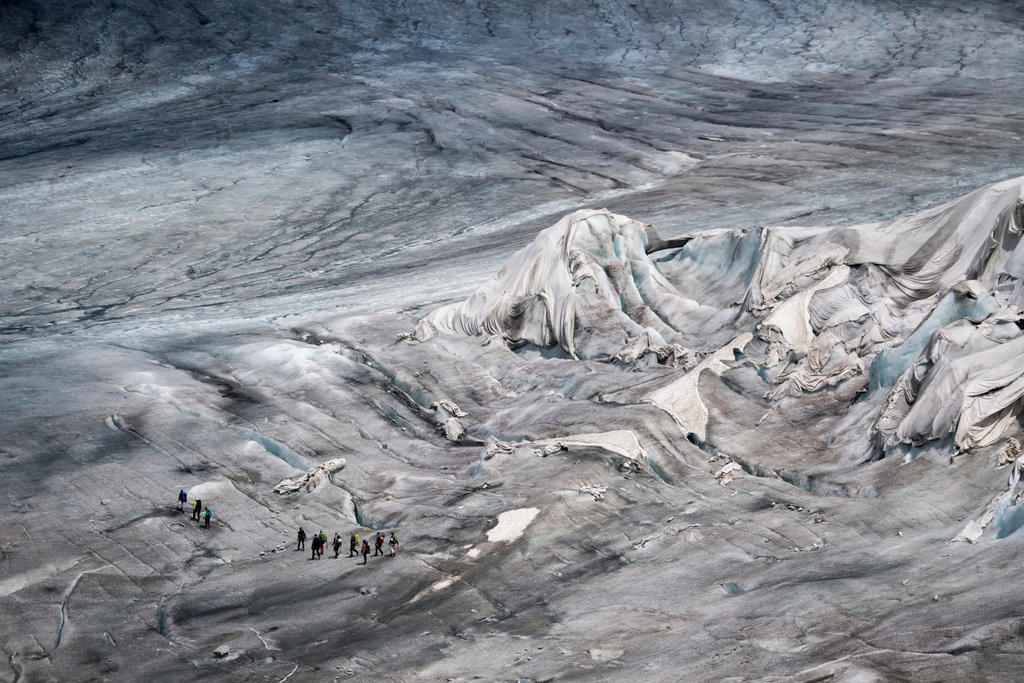
Climate study warns of greenhouse gas feedback loop

Many current climate models could be underestimating the long-term consequences of global warming, says an international study with Swiss participation.
Researchers from 17 countries, including a team from the Oeschger Centre for Climate Change ResearchExternal link at the University of Bern, combed through data going back 3.5 million years and analysed several warm periods.
During these periods, the high latitudes near the poles heated up more than the tropics, said a statement from the University of Bern, Oregon State University and the University of New South Wales.
The scientists said this meant the thawing of permafrost released additional carbon dioxide and methane into the atmosphere, which would drive global warming even more.
+ How the risks of climate change outweigh the opportunities in Switzerland
If humanity succeeded in limited global warming to two degrees Celsius more than in pre-industrial levels, the risk would be “somewhat small” of a self-reinforcing greenhouse gas feedback loopExternal link, they concluded. However, they said future emissions scenarios would have to take into consideration the high amount of additional carbon dioxide.
The 59 researchers had focused on the issue of past warm periods at a workshop in Bern in April. The resulting study has now been published in the journal Nature Geoscience.

More
How the Alps inform polar research

In compliance with the JTI standards
More: SWI swissinfo.ch certified by the Journalism Trust Initiative
















![The four-metre-long painting "Sonntag der Bergbauern" [Sunday of the Mountain Farmers, 1923-24/26] had to be removed by a crane from the German Chancellery in Berlin for the exhibition in Bern.](https://www.swissinfo.ch/content/wp-content/uploads/sites/13/2025/12/01_Pressebild_KirchnerxKirchner.jpg?ver=14ffbad8)













You can find an overview of ongoing debates with our journalists here . Please join us!
If you want to start a conversation about a topic raised in this article or want to report factual errors, email us at english@swissinfo.ch.